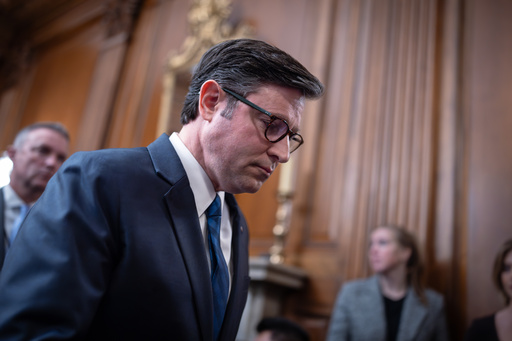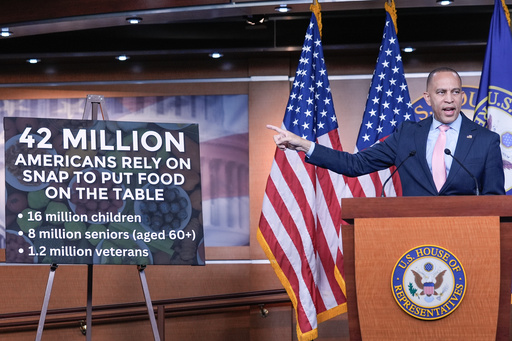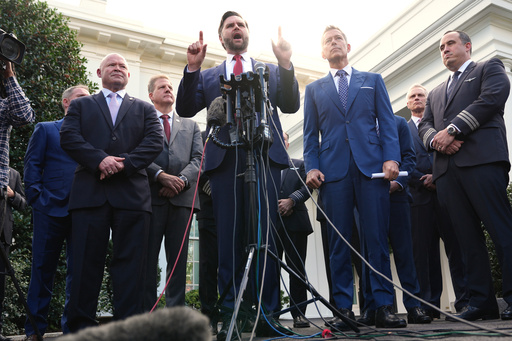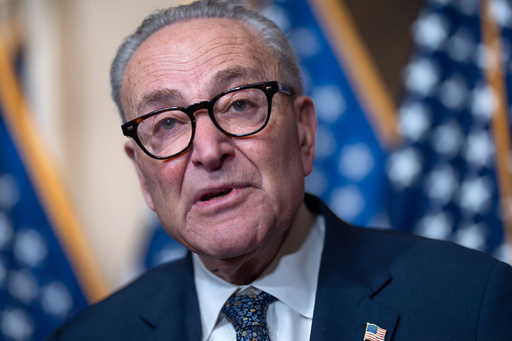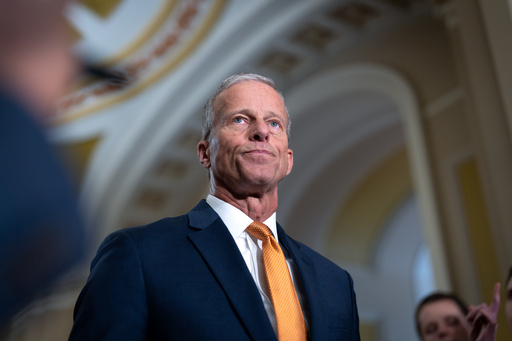Spiraling effects of the shutdown leave lawmakers grasping for ways to end it
News > Top Stories

Audio By Carbonatix
1:43 PM on Thursday, October 30
By LISA MASCARO
WASHINGTON (AP) — Certain senators know it. House Speaker Mike Johnson knows it. And with President Donald Trump back in Washington from his overseas trip, perhaps the White House knows it, too.
For many, it's time for the government shutdown to come to an end.
From coast to coast, fallout from the dysfunction of a shuttered federal government is hitting home: Alaskans are stockpiling moose, caribou and fish for winter, even before SNAP food aid is scheduled to shut off. Mainers are filling up their home-heating oil tanks, but waiting on the federal subsidies that are nowhere in sight.
Flights are being delayed with holiday travel around the corner. Workers are going without paychecks. And Americans are getting a first glimpse of the skyrocketing health care insurance costs that are at the center of the stalemate on Capitol Hill.
“People are stressing,” said Sen. Lisa Murkowski of Alaska, as food options in her state grow scarce.
“We are well past time to have this behind us.”
While quiet talks are underway, particularly among bipartisan senators, the shutdown is not expected to end before Saturday's deadline when Americans' deep food insecurity — one in eight people depend on the government to have enough to eat — could become starkly apparent if federal SNAP funds run dry.
The White House has moved money around to ensure the military is paid, but refuses to tap funds for food aid. In fact, Trump's “big, beautiful bill” signed into law this summer, delivered the most substantial cut ever to the Supplemental Nutrition Assistance Program, known as SNAP, projected to result in some 2.4 million people off the program.
At the same time, many Americans who purchase their own health insurance through the federal and state marketplaces, with open enrollment also beginning Saturday, are experiencing sticker shock as premium prices jump.
“We are holding food over the heads of poor people so that we can take away their health care,” said Rev. Ryan Stoess, during a prayer with religious leaders at the U.S. Capitol.
“God help us,” he said, “when the cruelty is the point.”
The House remains closed down under Johnson for the past month. Senators are preparing to depart Thursday for the long weekend. Trump returns late Thursday after a whirlwind tour of Asia.
That means the shutdown, in its 30th day, appears all but certain to stretch into another week, putting it on track to become the longest in history, surpassing the 35-day lapse that ended in 2019, during Trump's first term over his demands to build the U.S.-Mexico border wall.
The next inflection point comes after Tuesday's off-year elections — the New York City mayor's race, as well as elections in Virginia and New Jersey that will determine those states' governors. Many expect that once those winners and losers are declared, and the Democrats and Republicans assess their political standing with the voters, they might be ready to hunker down for a deal.
“I hope that it frees people up to move forward with opening the government,” said Senate Majority Leader John Thune, R-S.D.
The Republicans, who have majority control of Congress, find themselves in an unusual position, defending the furloughed federal workers and shuttered programs they have long sought to cut — including most recently with nearly $1 trillion in reductions in Trump's big tax breaks and spending bill.
Medicaid, the health care program, and SNAP food aid, suffered sizable blows this summer, in part by imposing new work requirements. For SNAP recipients, many of whom were already required to work, the new requirements extend to older Americans up to age 64 and parents of older school-age children.
House Democratic Leader Hakeem Jeffries said Republicans now “have the nerve” to suggest it's a political strategy to withhold food aid.
“We are trying to lift up the quality of life for the American people,” Jeffries of New York said about his party.
“The American people understand that there's a Republican health care crisis,” he said. “The American people understand Republicans enacted the largest cut to nutritional assistance in American history when they cut $186 billion from their one, big, ugly bill.”
During the summer debate over Trump's big bill, Johnson and other Republicans railed against what they characterized as lazy Americans, riding what the House speaker calls the “gravy train” of government benefits.
The speaker spoke about able-bodied young men playing video games while receiving Medicaid health care benefits and insisted the new work requirements for the aid programs would weed out what they called “waste, fraud and abuse.”
“What we’re talking about, again, is able-bodied workers, many of whom are refusing to work because they’re gaming the system,” Johnson said in spring on CBS' “Face the Nation.”
“And when we make them work, it’ll be better for everybody, a win-win-win for all,” he said.
What remains out of reach, for now, is any relief from the new health care prices, posted this week, that are expected to put insurance out of reach for many Americans when federal subsidies that help offset those costs are set to expire at the end of the year.
Democrats have been holding out for negotiations with Trump and the Republicans to keep those subsidies in place. Republicans say they can address the issue later, once the government reopens.
__
Associated Press writer Matt Brown contributed to this report.
